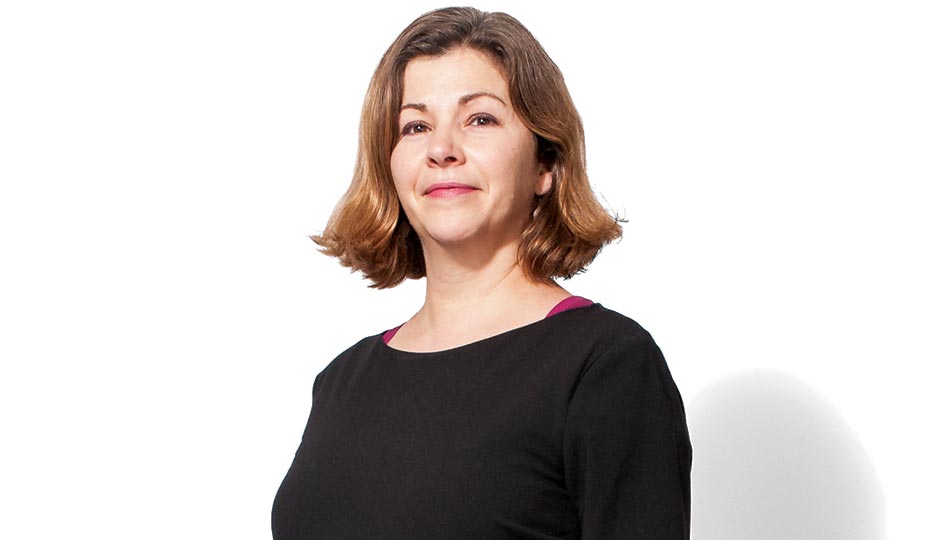We Want Answers: Maiken Scott

Photograph by Claudia Gavin
You were born in Germany. How did you end up in Philly? I made a mistake that ended up in my favor. When I was very young, I got married to my American boyfriend. We moved to the Arizona desert together. It was totally crazy; I’d always lived in the city, and I had never been to America before. I remember landing at night and thinking, “I don’t see a lot of lights.” Then I decided I was going to Temple, and we broke up. I did not truly feel at home in this country until I moved to Philly.
Shortly after the election, you traveled back to Germany. Did you get a lot of questions about President Trump? A lot of my German friends say, “Somebody like Trump would never get elected here.” But that’s what a lot of people here thought, too. Germans are keenly aware of their past, but you also see a lot of class resentment and unemployment there.
Terry Gross’s voice has changed over the years. Has yours? No, I’ve always had a deep voice. As a kid, I tried to change that. I was so embarrassed. But my mother — God bless her — she would always say, “Talk like a human.”
What makes The Pulse different from Radiolab, Invisibilia, and other science and health podcasts out there? Radiolab is an art form. The way it’s put together is as important as the story. To me, the content comes first. I take the biggest pride in pulling off a really important policy story. For instance, you can go to the hospital and if the guy who’s doing your anesthesiology isn’t covered by your insurance, you can end up with a $32,000 bill. If we can make that as listenable as a really sexy story about whales crying 10,000 feet under the ocean, then I’m happy.
What’s the most awe-inspiring scientific finding you’ve read about recently? And what’s the scariest? The thing that inspires me the most is the fact that people keep looking for answers. The real work of science is tedious as hell. Genetics are always a little scary. My colleague is doing a story on a woman who has Huntington’s disease and didn’t want her children to have it. So you can do away with that through genetic testing. That’s pretty amazing, but what else could we say we don’t want?
There’s a perception that NPR is for liberals, by liberals. Is that wrong? We strive for fairness, and we do so absolutely. But I do think that we talk a lot about diversity but often not diversity of opinions. I would love to see newsrooms in general do a better job of that. It’s important to continuously challenge yourself, but if everybody on your team is of the same mind-set, that’s just not going to happen.
Before you hosted The Pulse, your news beat was behavioral health. How would you rate America’s mental health right now? Being online a lot is not good for most of us. After the election, I went off Facebook for quite some time. I realized I was actually enjoying the constant little bursts of anger and stress I felt on it. It’s funny; my husband and I host a political discussion group at our house. We had one after the election, and by the end, everyone was laughing hysterically. I think people felt like, “Okay, I’m better now, because this person who is my opponent is not this faceless crazy person.”
Those kinds of discussions are rare nowadays. So many people live in ideological bubbles. Yeah. When I moved to America, one of the first things people said to me was, “You should never talk about politics.” I was reprimanded. I thought, well, what’s there to talk about if you’re not yapping about politics? Now we’re talking about it for the first time — on social media — and we’re not good at it.


